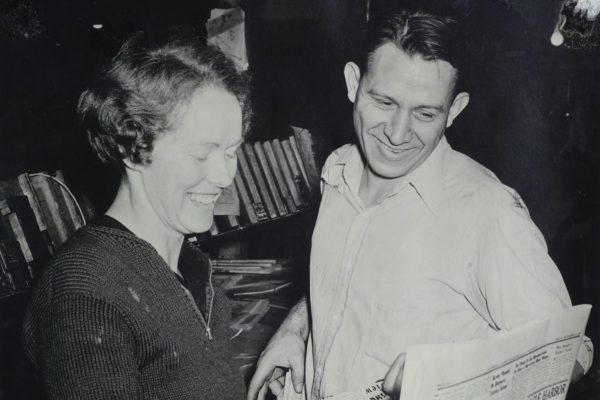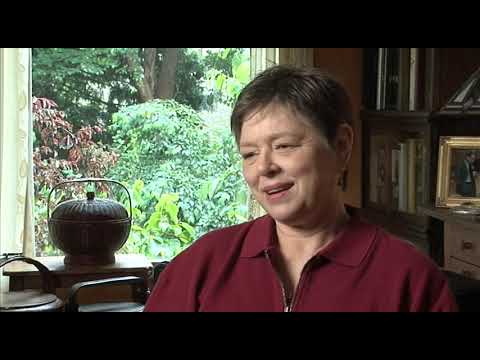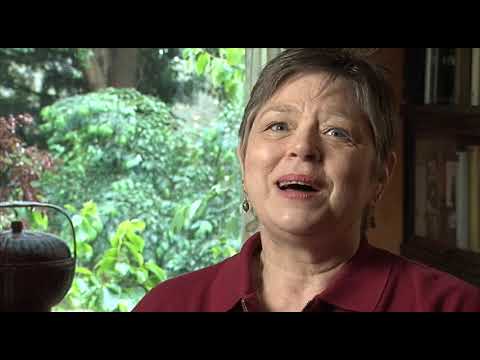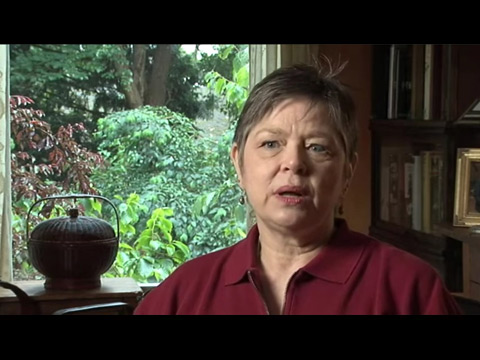Video Interview — August, 2007
Woodwards’ reactions to Executive Order 9066 – Mary Woodward (OH0083)
Transcript
I think it probably started with their understanding of the Constitution. That what was being proposed was a violation of citizenship rights. That you can’t… what was being discussed at that time and what eventually came about in March of ’42, was the wholesale roundup of a group of people based totally on their ethnic background without any arrest, any day in court, due process of law was out the window, and it was all because there might be a spy. So they rounded up everyone, 120,000 people, because maybe there was a spy there. None was ever charged, none of the people who were sent to concentration camp was ever even charged with a crime of that… of treason, or what, sabotage, let alone, proven guilty in court. And they said this is a direct violation of the constitution, that provides due process of law to citizens.
I think that had that not been the issue, I think that my mother probably would have spoken out anyway, because she saw not only the injustice against citizenship rights, but she saw the human… that this was just not right, regardless of whether it was constitutional or not. I don’t know that my father would have been as adamant if the constitutional issue hadn’t been there. I don’t know, that was his background, you know, it was just, we are all the product of our upbringing.
1940, ’41, ’42… very different from even 1962. I mean, especially different from 2002. We look back over, what, 50 years of civil rights, marches protests, and it’s ok and take a placard and say, “My government is doing the wrong thing. I object to that and I’m going to get a bunch of people together and we’re gonna to march and say this is wrong.” Nobody did that in 1940. Nobody did that. And to, especially in the time of war, to say the government’s doing this wrong. You just didn’t do that. Everybody was very patriotic, it was the good thing to be, patriotic, and to accept what your government said.
And the press went along with that. They didn’t show Roosevelt on crutches. They didn’t show Roosevelt in his wheel chair. They showed him after he was propped up at the podium looking like a healthy man. So it was a different time, and my parents were part of that. They supported their government 100%. It was very, very difficult for them to believe that Roosevelt or the government would ever agree to this wholesale roundup of citizens. The way that 9066 was presented, it was so vague and at the same time, there were other announcements coming from the government saying, “Well, of course the Japanese Americans are the first, but the German, German Americans and the Italians Americans, certainly will be….” There were statements put out that they were also going to be….
So my folks said, My goodness, I’m glad that these racist columnists aren’t going to be the ones to dictate that it’s just gonna be the Japanese. Our government is going to apply this equally to the aliens from Germany and Italy. Of course they didn’t do that. And it was, I think, very, very difficult for my folks to finally realize that they weren’t ever gonna do that. That, indeed they were just targeting on the basis of race, this one group from the West coast.





